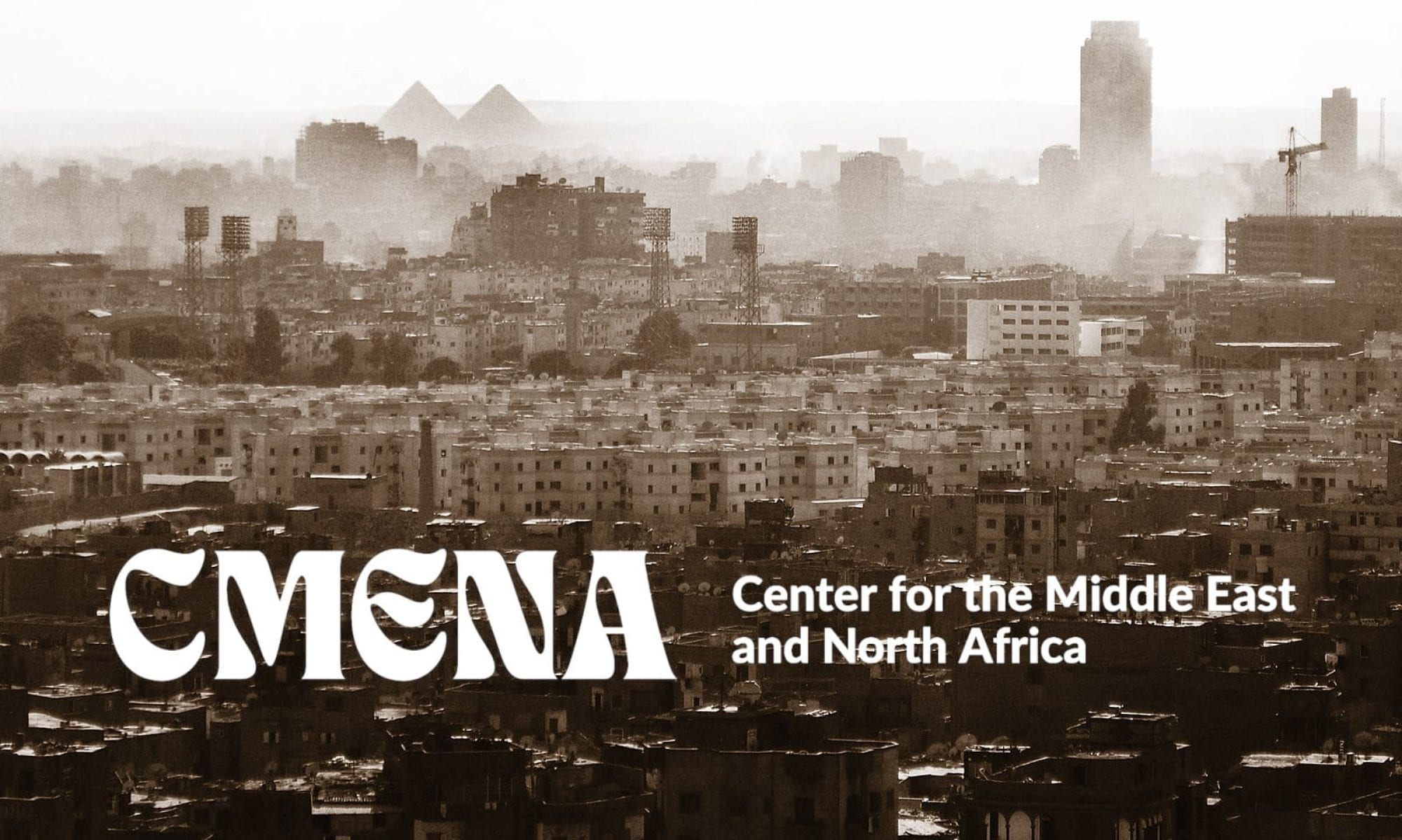Welcome to the Center for the Middle East and North Africa (CMENA) at UC Santa Cruz.
Established in 2019, the Center for the Middle East and North Africa (CMENA) is dedicated to the project of creating community and promoting education and research about the histories, politics, and cultures of the peoples who live in the Middle East and North Africa. Our programming and activities are guided by a set of core values.
Distinction. The scholarly community that comprises the Center for the Middle East and North Africa is distinct in its excellence. Its faculty are innovative and active scholars and have authored an impressive array of publications. Their research interests and those of the graduate students associated with CMENA include explorations of politics, economics, race, law, the environment, film, literature, linguistics, archeology, the digital humanities, and the histories of science and medicine. The center possesses a unique strength in the regions that comprise North Africa. Among their awards and honors, CMENA’s faculty have been awarded the National Jewish Book Award, the Mellon Sawyer seminar, the Archaeological Institute of America’s Award for Outstanding Work in Digital Archaeology, the John Simon Guggenheim Memorial Fellowship, the American Council of Learned Societies Fellowship, the National Science Foundation’s CAREER Award, the National Endowment for the Humanities Fellowship, the University of California President’s Faculty Research Fellowship, the Hellman Fellowship, the Herbert D. Katz Center for Advanced Judaic Studies Fellowship, and have been selected to be members of the Institute for Advanced Study and the Radcliffe Institute for Advanced Study at Harvard University.
Opportunity. CMENA is devoted to creating opportunities for students regardless of their financial means. These include travel and study in the region, access to a substantial and diverse curriculum, language study, and the forging of relationships with prominent scholars and professionals. We are proud to belong to a Hispanic-Serving Institution (HSI) and an Asian American Native American Pacific Islander-Serving Institution (AANAPISI), which ranks among the top institutions for social mobility and supports first-generation college students through the First Generation Initiative. CMENA strives to open the world to students who are interested in learning, engagement, and positioning themselves as global citizens.
Community. The Center for the Middle East and North Africa is a unique resource for the communities of the Silicon Valley, California’s Central Coast, and the Bay Area, and for students, faculty, and staff at UC Santa Cruz. Our mission includes bringing these different communities into conversation with one another and with scholars, activists, journalists, artists, and those involved in the politics of the region. On campus, CMENA works closely with departments in the Humanities, Social Sciences, and Arts Divisions, and with other academic centers that include the Center for Jewish Studies, the Center for Cultural Studies, and the Center for South Asian Studies. We strive to demonstrate the centrality of the Middle East and North Africa within global history, and the region’s significance in the political, cultural, intellectual movements that shape our world.
CMENA Mailing List
To stay abreast of news #Sign-Upand developments at UC Santa Cruz related to CMENA, please subscribe to our mailing list.
If you are interested in events related to the Humanities more broadly, please visit the homepage of The Humanities Institute and scroll down to sign up for their mailing list.

The Center for the Middle East and North Africa is a project of The Humanities Institute at UC Santa Cruz, a hub for academic research, cross-discipline collaboration, and public engagement. The Humanities Institute incubates ideas and fosters innovation by funding projects, centers, and research clusters that enable faculty and students to work on some of the biggest problems of our day.
For questions related to the programs or activities of CMENA, please contact Director Muriam Haleh Davis at muhdavis@ucsc.edu.
